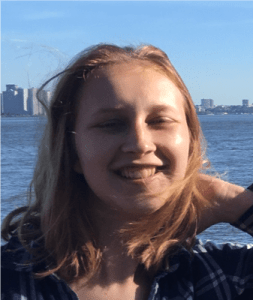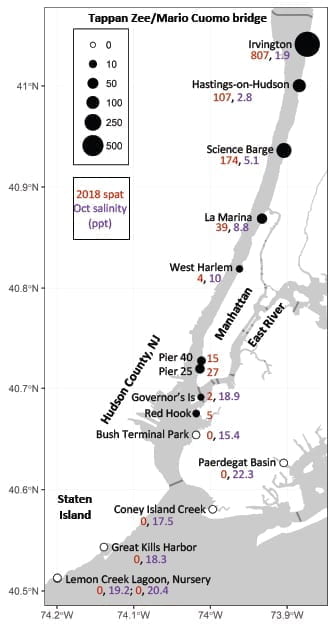We are excited to be working with the eastern oyster breeders consortium on a new project funded by the Atlantic States Marine Fisheries Commission. The Hare Lab will be investigating genomic signatures of domestication selection in eastern oysters.
Author: Chuck Jessop
Welcome Hannah Hartung!
Welcome Kira Treibergs!
Kira is part of a cohort of postdocs who joined Cornell departments in 2019 to work with faculty on building more active learning pedagogy into existing and new courses. Dr. Hare will work with Kira to develop teaching modules on critical thinking, project management and team dynamics for use in capstone courses for the Environment and Sustainability major. A major emphasis also will be on developing assessments for these learning outcomes.
New Surf Clam Project
With funding from the Mid-Atlantic Fisheries Management Council we will be working with state surveys in MA, NY and NJ as well as a contractor to sample both Spisula subspecies and use genetic markers to quantify patterns of gene flow within subspecies and identify hybrids between them.
Oyster larvae stay close to home
2018 oyster settlement counts show that the only known reproductive population in the Hudson River is not spreading its reproductive bounty very far downstream. These 2018 results are from a collaboration with Mike McCann at The Nature Conservancy and Liz Burmester with the Billion Oyster Project. Thanks to Kaili Gregory, Adam High, Harmony Borchardt-Wier, Tatiana Castro, the citizen scientists who contributed to spat counting, and to site hosts who graciously provided space for and security of experimental outplants of oysters and shell. Funding was provided by the New York State Water Resources Institute at Cornell University.
Oysters thriving in Hudson River
Congrats to Katie McFarland for her new PLoS ONE paper: https://journals.plos.org/plosone/article?id=10.1371/journal.pone.0207368#pone-0207368-g006
Hare Lab recruiting PhD student
interested in using genetic/genomic approaches to measure and understand adaptive capacity of populations for application in fisheries management and population restoration contexts. Apply to the Natural Resources graduate field, Dec. 1 deadline.
Hare Lab recruiting postdoc
Looking for a postdoc with diverse skills to lead genomic aspects of an NSF-funded project to identify and spatially map balanced polymorphisms underlying oyster tolerance to low salinity. http://evol.mcmaster.ca/~brian/evoldir/PostDocs/Cornell.EcolEvolutionaryGenomics
Hare Lab oyster experiments highlighted in Boating on the Hudson magazine
[et_pb_section admin_label=”section”]
[et_pb_row admin_label=”row”]
[et_pb_column type=”4_4″]
[et_pb_text admin_label=”Text”]
See article with picture of giant NYC oyster:
https://www.boatingonthehudson.com/flippingbook/2018/sep-oct/Articles/04TheWonderfulOyster.pdf
[/et_pb_text]
[/et_pb_column]
[/et_pb_row]
[/et_pb_section]
Common ground among NYC oyster restoration stakeholders
Congrats to Jason Holley (McComas PhD student, Dept. Communication) for his paper in Marine Policy: Troubled Waters: Risk Perception and the Case of Oyster Restoration in the Closed Waters of the Hudson-Raritan Estuary. ACSF-funded survey discovers that urban oyster restoration risk/benefit perceptions do not align with stakeholder affiliation.

